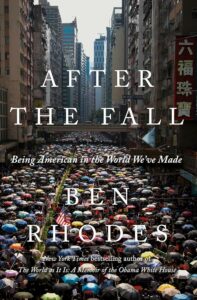The coffee landscape has experienced a significant transformation in recent years, primarily influenced by the preferences and values of millennials. This generation’s preference for specialty coffee transcends mere taste; it embodies a commitment to quality, sustainability, and unique experiences.
In examining the characteristics that differentiate specialty coffee from its conventional counterparts, we recognize the substantial role that social media has played in promoting this movement. Additionally, we emphasize millennials’ dedication to ethically sourced products and how this commitment is shaping the future of the coffee industry.
This exploration will delve into the complexities of specialty coffee and the innovative trends emerging within this dynamic community.
What is Specialty Coffee?
Specialty coffee refers to coffee that is cultivated in specific locations with an emphasis on quality, unique flavors, and sustainability. This segment of coffee culture highlights artisanal craftsmanship, ethical sourcing, and the distinct characteristics associated with the origins of coffee.
In contrast to standard coffee, specialty coffee is frequently graded and rated, positioning it as a premium choice for discerning consumers, including those who are tech-savvy and health-conscious.
The third wave coffee movement has significantly contributed to the popularity of this concept, fostering a greater appreciation for the coffee experience and the intricate journey from bean to cup.
How is Specialty Coffee Different from Regular Coffee?
Specialty coffee distinguishes itself from regular coffee primarily through its quality standards, processing methods, and the overall experience it provides to consumers, thereby positioning itself as a premium alternative in the global coffee market.
In this context, flavor profiling adopts a nuanced approach, enabling enthusiasts to appreciate a diverse array of tasting notes, which may range from fruity to nutty undertones. In contrast, regular coffee frequently lacks the meticulous grading process that specialty coffee undergoes, where beans are assessed based on criteria such as origin, aroma, and acidity.
The importance of ethical sourcing is paramount, as many specialty coffee producers emphasize sustainable practices that support local farmers. As consumer preferences increasingly shift toward transparency and quality, the demand for specialty coffee continues to rise, prompting roasters and cafes to refine their offerings and enhance preparation techniques to cater to discerning palates.
What Makes Specialty Coffee Unique?
Specialty coffee is distinguished by its emphasis on artisanal craftsmanship, characterized by meticulous attention to detail in the processes of sourcing, roasting, and brewing. This approach ensures that each cup of coffee presents unique flavors that authentically reflect the coffee’s origins.
This commitment to quality is further exemplified through direct trade practices that cultivate relationships between growers and roasters, promoting fair compensation and sustainable farming methods. Local roasters are integral to this narrative, as they not only highlight a variety of bean profiles but also actively engage with their communities, fostering awareness of the journey from seed to cup.
Additionally, the growing emphasis on coffee education enables consumers to appreciate not only the taste but also the environmental and social implications of their choices. By prioritizing sustainability and community engagement, the specialty coffee movement fosters a more ethical and flavorful experience for all stakeholders involved.
The Rise of Millennials in the Coffee Industry
The emergence of Millennials in the coffee industry has profoundly transformed coffee culture, influencing consumer behavior and preferences in ways that redefine the overall coffee experience and challenge traditional norms within the global coffee market.
This demographic has played a pivotal role in fostering increased brand loyalty and reshaping perceptions of coffee as an artisanal product characterized by unique flavors, ethical sourcing, and community engagement.
Moreover, their lifestyle choices frequently emphasize sustainability and health consciousness, which in turn shapes the types of coffee establishments they patronize and the beverages they select.
Why are Millennials Interested in Specialty Coffee?
Millennials exhibit a pronounced interest in specialty coffee, driven by their strong values related to health consciousness, sustainability, and a preference for unique flavors that enhance their beverage choices and lifestyle rituals.
This demographic is increasingly attracted to the concept of ethical consumption, actively seeking brands that emphasize environmentally friendly practices and fair trade sourcing. The impact of their coffee selections extends beyond mere personal enjoyment, as they are frequently motivated by a commitment to social responsibility.
Social media significantly influences their preferences, with visually appealing coffee aesthetics dominating platforms such as Instagram, where sharing a captivating latte art photo has become an integral aspect of the coffee experience.
This combination of ethical considerations and the pursuit of an engaging coffee journey further propels Millennials toward specialty options that offer both quality and a narrative behind each cup.
How are Millennials Changing the Coffee Industry?
Millennials are significantly influencing the coffee industry by increasing demand for innovative brewing methods, unique coffee experiences, and a focus on community engagement within coffee shops and local roasters.
This generation’s preference for artisanal craftsmanship and willingness to pay premium prices reflect a broader cultural shift toward prioritizing quality over quantity. Their inclination for ethically sourced beans and specialty blends has resulted in a marked demand for product differentiation within the sector.
Furthermore, coffee subscriptions have gained popularity, enabling millennials to explore a diverse range of flavors and origins from the convenience of their homes. Concurrently, coffee events, such as tastings and barista competitions, function not only as social gatherings but also as educational platforms that foster community engagement while promoting a deeper appreciation for the craft.
The Impact of Social Media on the Specialty Coffee Movement
Social media has significantly influenced the specialty coffee movement by offering a platform for coffee enthusiasts to exchange knowledge and experiences while promoting distinctive products.
This transformation has fundamentally altered the manner in which consumers interact with coffee culture.
How has Social Media Helped to Popularize Specialty Coffee?
Social media has played a significant role in the popularization of specialty coffee by enabling brands and consumers to share visually appealing content that emphasizes the aesthetics and distinct flavors of various coffee offerings.
Platforms such as Instagram and TikTok have become essential in promoting engagement and cultivating brand loyalty among coffee enthusiasts. Through captivating visuals and compelling narratives, these social networks encourage users to explore innovative brewing methods while highlighting the health benefits associated with specialty coffee.
Influencers frequently demonstrate the intricate preparation techniques of pour-overs or the latest advancements in cold brew, making these methods both accessible and intriguing.
This creative approach to content not only captures attention but also educates consumers about the advantages of high-quality beans and alternative brewing styles, thereby enhancing their appreciation and fostering a deeper connection with the coffee culture.
What Role do Influencers Play in the Specialty Coffee Movement?
Influencers play a pivotal role in the specialty coffee movement by curating content that highlights their personal coffee experiences, thereby fostering a deeper connection between brands and consumers through social media engagement.
Through their meticulously crafted narratives and visually appealing posts, these influencers effectively underscore the authenticity of various coffee brands, assisting consumers in navigating the competitive landscape of premium brews. By promoting unique blends and ethical sourcing practices, they illuminate product differentiation that aligns with the values of coffee enthusiasts.
Influencers actively engage their communities, initiating discussions around brewing techniques and flavor profiles, which not only drive trends but also cultivate a sense of belonging among their followers.
This communal approach ultimately enhances brand loyalty and encourages an exploratory spirit, motivating consumers to seek out distinctive coffee experiences.
How do Coffee Shops Use Social Media to Attract Millennials?
Coffee shops effectively attract Millennial consumers by utilizing social media to promote distinctive coffee experiences, share engaging content, and cultivate a welcoming café environment that aligns with the values of this tech-savvy generation.
To further engage this demographic, many establishments highlight their commitment to sustainability by showcasing ethical sourcing practices, which resonate strongly with conscious consumers.
By emphasizing partnerships with local farmers and offering organic blends, these businesses not only enhance brand loyalty but also draw in individuals interested in coffee tourism.
Additionally, personalized services, such as customized drinks tailored to individual preferences, foster a sense of community and inclusivity. Social media platforms are employed to promote local events and gatherings, merging entertainment with a focus on responsible consumption and unique coffee experiences. This highlights the importance of coffee culture in fostering community engagement and brand loyalty.
These comprehensive strategies collectively establish a vibrant online presence that resonates with Millennial values, showcasing coffee innovations and contemporary consumer trends.
The Sustainability Factor: How Millennials are Driving the Demand for Ethically-Sourced Coffee
The sustainability factor significantly influences Millennials’ demand for ethically sourced coffee, leading coffee companies to implement innovative practices aimed at reducing environmental impact, such as eco-friendly practices and fair trade initiatives, while providing transparency to consumers.
What is Ethically-Sourced Coffee and Why is it Important to Millennials?
Ethically-sourced coffee refers to coffee produced through practices that ensure fair compensation for farmers, promote environmental sustainability, and maintain transparency within the supply chain—values that are increasingly important to Millennials. This approach aligns with the principles of conscious capitalism and social responsibility.
Contemporary consumers are becoming more cognizant of the impact their purchasing decisions have on global communities, resulting in a significant transformation in consumer behavior. They actively seek to establish direct trade relationships with producers, fostering a sense of connection and responsibility regarding the origins of their coffee. This trend supports the slow coffee movement and emphasizes quality over quantity.
This trend not only enables farmers but also allows consumers to support sustainable practices, which are essential for promoting a healthier planet. By prioritizing ethical sourcing, coffee consumers can contribute to a positive cycle of economic growth and improved quality, ultimately benefiting the coffee community while fulfilling their own preferences for transparency and integrity. Furthermore, such practices help in supporting the local economy and fostering coffee tourism.
How are Millennials Influencing Coffee Companies to Prioritize Sustainability?
Millennials are exerting considerable influence on coffee companies, prompting them to prioritize sustainability by demanding transparency in sourcing practices and supporting brands that demonstrate a commitment to environmental and social responsibility. This influence is evident in the rise of coffee sustainability initiatives and the preference for small-batch roasting.
This generational shift transcends mere preferences for caffeine; it embodies a desire to align with brands that reflect their values. As this demographic embraces ethical consumption, they actively seek out coffee trends that showcase innovative brewing methods, such as cold brew and nitro coffee, which frequently employ more eco-friendly techniques. Additionally, Millennials show a keen interest in coffee education and coffee workshops to deepen their understanding of the craft.
Their appreciation for artisanal practices compels retailers to reassess their supply chains, placing a greater emphasis on fair trade and organic certifications, and ensuring premium coffee quality through transparency in the coffee origin.
Consequently, the market is witnessing an increase in sustainable coffee offerings, as businesses acknowledge the necessity of catering to these preferences while adapting to the rising demand for responsible consumption. This includes innovations in coffee pairings and coffee-related merchandise that appeal to health-conscious consumers.
The Future of the Specialty Coffee Movement
The future of the specialty coffee movement appears promising, as trends continue to evolve under the influence of Millennials, who are driving the demand for gourmet coffee and diverse flavors.
This demographic is increasingly seeking innovative products, distinct flavor profiles, and sustainable practices that emphasize quality and ethical considerations. They value coffee aesthetics and experiential marketing that highlight unique beverages and artisanal techniques.
What Trends are Emerging in the Specialty Coffee Industry?
Emerging trends in the specialty coffee industry indicate a pronounced focus on premium pricing for high-quality products, an increased emphasis on health consciousness, and the development of unique coffee experiences that align with consumers’ lifestyle choices. These trends include the rise of third wave coffee and the popularity of coffee subscriptions, which allow coffee enthusiasts to explore diverse flavors from various regions.
Notably, coffee subscriptions have gained significant traction, facilitating enthusiasts’ exploration of diverse flavors from various regions without needing to leave the comfort of their homes. This model not only addresses the rising demand for convenience but also fosters greater consumer engagement, as individuals receive curated selections tailored to their personal taste preferences. Additionally, coffee reviews and storytelling enhance the overall experience, making it more personalized and engaging.
The heightened availability of organic coffee options aligns seamlessly with a more health-conscious consumer base that prioritizes sustainability and quality. As coffee aficionados seek richer, more complex flavor profiles, producers are responding by upholding quality standards and ensuring transparency in sourcing, thereby guaranteeing that each cup meets the evolving preferences of today’s consumers. This shift also encourages the development of coffee collaborations and innovative brewing techniques to create new, exciting coffee flavors.
How will the Specialty Coffee Movement Continue to Evolve with the Influence of Millennials?
The specialty coffee movement is poised for ongoing evolution, significantly influenced by Millennials who prioritize innovative brewing methods and seek coffee experiences that align with their values related to quality, sustainability, and community engagement. This includes a growing interest in coffee education and cultural shift towards appreciating the craftsmanship involved in specialty coffee.
As this demographic matures, their tastes and preferences are expected to exert considerable influence on market demand, thereby attracting younger generations. Considering the increasing emphasis on transparency and ethical sourcing, coffee producers and retailers will be required to adapt their offerings to meet these evolving expectations. Digital marketing and the influence of coffee influencers will play a crucial role in shaping consumer preferences and driving market trends.
Furthermore, educational initiatives aimed at promoting coffee knowledge and appreciation will become essential, enabling customers to engage more profoundly with their beverages. Cultivating community connections through local coffee events and workshops may also enhance consumer loyalty, ensuring that both the products and the culture surrounding specialty coffee continue to flourish. Such initiatives can lead to heightened interest in coffee networking opportunities and experiential marketing efforts.
Frequently Asked Questions
What is the specialty coffee movement and why is it gaining popularity among millennials?
The specialty coffee movement refers to the growing trend of consumers seeking high-quality, unique and ethically-sourced coffee. Millennials are driving this movement as they prioritize sustainability, quality, and experiences over convenience and affordability.
How have millennials influenced the coffee industry?
Millennials have played a significant role in shifting the focus of the coffee industry towards sustainable and ethical practices. They are also willing to pay more for a quality cup of coffee and are more open to trying new and unique coffee flavors and brewing methods. Their spending habits reflect a preference for quality over quantity and a strong desire for transparency in the coffee supply chain.
Why are millennials willing to pay more for specialty coffee?
Millennials value transparency and ethical practices, which have led them to prioritize purchasing coffee from roasters and shops that source their beans directly from farmers and pay them fair wages. They are willing to pay more for coffee that aligns with their values and supports sustainable practices. This is part of their broader millennial identity that emphasizes conscious capitalism and social responsibility.
How has social media influenced the specialty coffee movement among millennials?
Social media has played a significant role in the popularity of specialty coffee among millennials. Platforms like Instagram have made it easier for coffee shops and roasters to showcase their unique offerings and connect with consumers who are seeking new and exciting coffee experiences.
What are some specific factors that have driven millennials to embrace the specialty coffee movement?
Aside from sustainability and ethical practices, millennials are also drawn to the specialty coffee movement because it offers a sense of community and connection. Coffee shops have become popular spaces for socializing and working, providing a sense of belonging for this generation. This community aspect is often enhanced by café ambiance and the hosting of coffee challenges and festivals.
How can businesses in the coffee industry cater to the preferences of millennials?
To attract and retain millennial customers, businesses in the coffee industry should focus on sustainability, transparency, and innovation. This can include offering ethically-sourced beans, implementing eco-friendly practices, and creating unique and Instagram-worthy experiences for customers to share on social media. Additionally, businesses can engage in coffee storytelling and provide coffee-related merchandise to strengthen brand authenticity and emotional connection with customers.

Hi, I’m Bruno, a coffee lover who finds inspiration in every cup. Writing about coffee allows me to share my passion for its rich flavors, fascinating history, and the unique culture it creates. Whether it’s exploring brewing techniques or discovering new coffee trends, I enjoy turning my love for coffee into stories that connect with fellow enthusiasts. For me, coffee isn’t just a drink—it’s an experience, and I’m here to celebrate it one word at a time.




